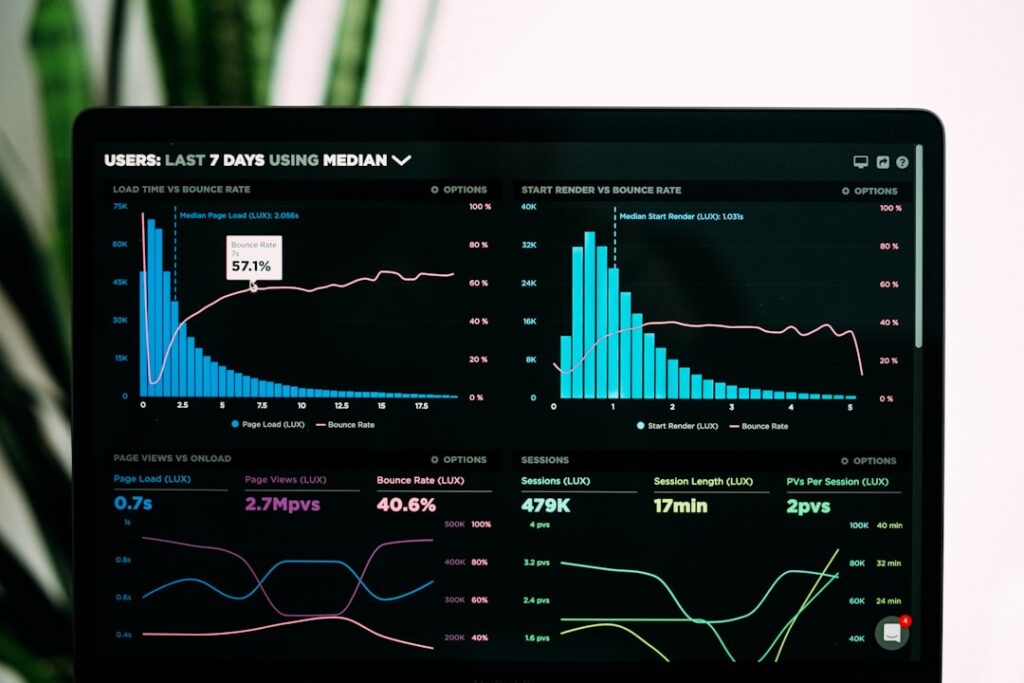Decentralized platforms represent a paradigm shift in how digital interactions and transactions are conducted. Unlike traditional centralized systems, where a single entity controls the data and the infrastructure, decentralized platforms distribute control across a network of nodes. This architecture not only enhances security but also fosters transparency and trust among users.
In a decentralized environment, no single point of failure exists, which significantly reduces the risk of data breaches and unauthorized access. The rise of blockchain technology has been instrumental in the development of these platforms, enabling secure and immutable records of transactions that are accessible to all participants in the network. The concept of decentralization extends beyond mere technology; it embodies a philosophy that prioritizes user autonomy and privacy.
In a world increasingly dominated by large corporations that monetize user data, decentralized platforms offer an alternative that empowers individuals. Users can engage with services without relinquishing control over their personal information, thus challenging the status quo of data ownership. This shift is particularly relevant in the context of social media, finance, and content distribution, where users often find themselves at the mercy of centralized entities that dictate terms and conditions.
By understanding decentralized platforms, individuals can better navigate this new landscape and leverage its benefits.
The Importance of Owning Your Data
Owning your data is becoming increasingly critical in an age where information is often equated with power. The digital footprint left by users on various platforms can be exploited for profit by corporations, leading to concerns about privacy and surveillance. When individuals do not have ownership over their data, they become vulnerable to manipulation and exploitation.
This lack of control can manifest in various ways, from targeted advertising that invades personal space to the unauthorized sale of personal information to third parties. The importance of data ownership lies in the ability to reclaim agency over one’s digital identity and ensure that personal information is used ethically. Moreover, owning your data fosters a sense of trust between users and platforms.
When individuals know that they have control over their information, they are more likely to engage with services and share their insights. This trust is essential for building healthy online communities and encouraging participation in decentralized ecosystems. For instance, in decentralized finance (DeFi), users can manage their assets without intermediaries, leading to greater financial autonomy.
The ability to own and control data not only enhances user experience but also promotes innovation as individuals feel empowered to contribute to the development of new applications and services.
How Decentralized Platforms Protect Your Data

Decentralized platforms employ various mechanisms to safeguard user data, primarily through encryption and distributed storage. Unlike centralized systems where data is stored in a single location, decentralized platforms distribute data across multiple nodes in the network. This distribution makes it significantly more challenging for malicious actors to access or manipulate sensitive information.
Additionally, many decentralized platforms utilize cryptographic techniques to ensure that data remains secure during transmission and storage. For example, end-to-end encryption ensures that only the intended recipients can access the information, thereby protecting it from eavesdroppers. Another critical aspect of data protection on decentralized platforms is the use of smart contracts.
These self-executing contracts are programmed to enforce specific conditions automatically, ensuring that data sharing occurs only under agreed-upon terms. This feature not only enhances security but also provides transparency, as all transactions are recorded on a public ledger that can be audited by any participant in the network. By leveraging these technologies, decentralized platforms create an environment where users can interact with confidence, knowing that their data is protected from unauthorized access and exploitation.
Steps to Take Control of Your Data on Decentralized Platforms
| Steps | Description |
|---|---|
| 1 | Educate yourself about decentralized platforms and how they handle data. |
| 2 | Choose decentralized platforms that prioritize user data privacy and security. |
| 3 | Understand the data control options provided by the decentralized platforms. |
| 4 | Regularly review and update your data sharing and privacy settings on decentralized platforms. |
| 5 | Consider using decentralized identity solutions to have more control over your personal data. |
Taking control of your data on decentralized platforms involves several proactive steps that empower users to manage their digital identities effectively. First and foremost, individuals should educate themselves about the specific decentralized platforms available and their respective features. Understanding how each platform operates, including its privacy policies and data management practices, is crucial for making informed decisions about where to engage.
For instance, platforms like IPFS (InterPlanetary File System) allow users to store files in a distributed manner, while others like Ethereum enable the creation of decentralized applications (dApps) that prioritize user privacy. Once users have identified suitable platforms, they should take advantage of tools designed for data management. Many decentralized platforms offer wallets or identity management solutions that allow users to store their credentials securely.
These tools often incorporate features such as multi-factor authentication and biometric verification to enhance security further. Additionally, users should regularly review their permissions and settings on these platforms to ensure that they are comfortable with how their data is being used. By actively managing their digital presence, individuals can maintain greater control over their information and mitigate potential risks associated with data sharing.
The Role of Blockchain Technology in Data Ownership
Blockchain technology serves as the backbone of many decentralized platforms, providing a secure and transparent framework for data ownership. At its core, blockchain is a distributed ledger that records transactions across multiple nodes in real-time. This decentralization ensures that no single entity has control over the entire network, thereby enhancing security and trust among participants.
Each transaction is cryptographically secured and linked to previous transactions, creating an immutable record that cannot be altered without consensus from the network participants. The implications of blockchain technology for data ownership are profound. By utilizing blockchain, users can create verifiable digital identities that they own and control.
This capability allows individuals to share specific pieces of information without exposing their entire digital footprint. For example, a user could prove their age or identity without revealing other personal details by leveraging zero-knowledge proofs—a cryptographic method that allows one party to prove knowledge of a fact without disclosing the fact itself. This level of privacy and control is unprecedented in traditional systems, where users often have little say over how their information is used or shared.
The Benefits of Owning Your Data on Decentralized Platforms

Owning your data on decentralized platforms offers numerous benefits that extend beyond mere privacy concerns. One significant advantage is enhanced security; since data is distributed across a network rather than stored in a single location, it becomes less susceptible to hacking attempts or unauthorized access. This architecture not only protects individual users but also contributes to the overall resilience of the platform itself.
Furthermore, because users retain ownership of their data, they can choose how it is shared or monetized, creating opportunities for new revenue streams. Another benefit lies in fostering innovation and collaboration within decentralized ecosystems. When users have control over their data, they are more likely to contribute to the development of new applications and services that align with their interests and values.
This collaborative spirit can lead to the emergence of novel solutions that address real-world problems while respecting user privacy. For instance, decentralized social media platforms allow content creators to monetize their work directly without relying on advertising revenue models that often compromise user privacy. By owning their data, users can engage more meaningfully with these platforms while supporting creators who prioritize ethical practices.
Risks and Challenges of Data Ownership on Decentralized Platforms
Despite the numerous advantages associated with owning data on decentralized platforms, several risks and challenges must be considered. One primary concern is the potential for user error; individuals may inadvertently expose sensitive information if they do not fully understand how to manage their digital identities effectively. Unlike centralized systems where customer support may assist with issues related to data management, decentralized platforms often lack such support structures, placing the onus on users to navigate complex interfaces and protocols.
Additionally, while decentralization enhances security against external threats, it does not eliminate all risks associated with data ownership. Users may still fall victim to phishing attacks or social engineering tactics designed to trick them into revealing sensitive information. Moreover, regulatory challenges pose another hurdle; as governments grapple with how to regulate decentralized technologies, users may face uncertainty regarding legal protections for their data ownership rights.
Navigating this evolving landscape requires vigilance and ongoing education about best practices for securing personal information.
The Future of Data Ownership: Decentralized Platforms
The future of data ownership appears increasingly intertwined with the evolution of decentralized platforms as society continues to grapple with issues surrounding privacy and surveillance. As awareness grows regarding the importance of owning personal data, more individuals are likely to seek out alternatives to traditional centralized services that prioritize user autonomy. This shift could lead to a proliferation of innovative applications built on decentralized technologies that cater specifically to user needs while respecting privacy.
Moreover, as blockchain technology matures and becomes more accessible, we may witness an expansion in the range of services offered by decentralized platforms. From healthcare records managed by patients themselves to educational credentials stored securely on a blockchain, the possibilities are vast. As these technologies gain traction, they will likely inspire new business models centered around user empowerment and ethical data practices.
Ultimately, the trajectory toward decentralized platforms signifies a broader cultural shift toward valuing individual rights in an increasingly digital world—one where owning your data becomes not just a privilege but a fundamental aspect of online existence.
FAQs
What are decentralized platforms?
Decentralized platforms are digital systems that operate without a central authority or server. They use blockchain technology to distribute data and processing across a network of computers, making them more secure and resistant to censorship.
What does it mean to own your data on decentralized platforms?
Owning your data on decentralized platforms means that you have control over how your personal information is used and shared. It allows individuals to store and manage their data without relying on a central authority, giving them greater privacy and security.
How do decentralized platforms enable data ownership?
Decentralized platforms use cryptographic techniques to give users control over their data. This includes the ability to encrypt and store data on the blockchain, as well as to grant and revoke access to third parties.
What are the benefits of owning your data on decentralized platforms?
Owning your data on decentralized platforms can lead to increased privacy, security, and control over personal information. It also reduces the risk of data breaches and unauthorized access by third parties.
Are there any limitations to owning your data on decentralized platforms?
While decentralized platforms offer greater control over data, they may also come with technical challenges and potential security vulnerabilities. Additionally, the user experience and adoption of decentralized platforms may still be in the early stages of development.



